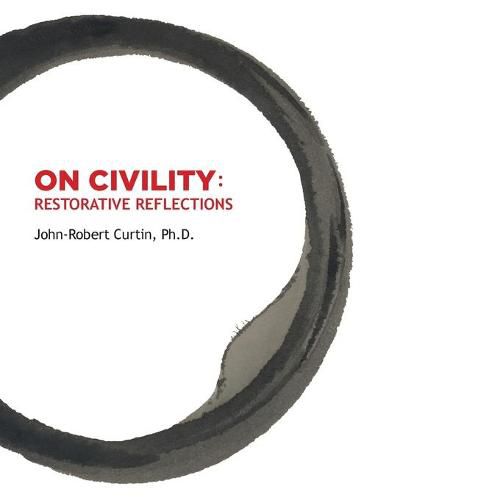Readings Newsletter
Become a Readings Member to make your shopping experience even easier.
Sign in or sign up for free!
You’re not far away from qualifying for FREE standard shipping within Australia
You’ve qualified for FREE standard shipping within Australia
The cart is loading…






This title is printed to order. This book may have been self-published. If so, we cannot guarantee the quality of the content. In the main most books will have gone through the editing process however some may not. We therefore suggest that you be aware of this before ordering this book. If in doubt check either the author or publisher’s details as we are unable to accept any returns unless they are faulty. Please contact us if you have any questions.
This collection of poetry centers on my reflections of the concepts surrounding civility, and writing the poems has been restorative to me and to my understanding of this ancient concept.
Beginning with the traditional notion of manners and politeness (George Washington, Rules of Civility & Decent Behavior, 1744), and continuing to the more subtle concepts of compassion, dignity, human value, human worth, forgiveness, and self-dignity, this collection is an attempt to understand and explain a concept that has varied over time and through different cultures. The concept is often connected with civilization and civil because they share the same root word, but civility is more active, more basic, and more personal. Being civil to one another is much more active and positive a good than mere politeness or courtesy, (Robert B. Pippin, The Persistence of Subjectivity, 2005).
In order to fully comprehend civility, one must reevaluate the status quo and build on the ancient principles of the interdependence of human beings (Dalai Lama, Beyond Religion, 2011). Civility is therefore interconnected with compassion, justice and humanity.
An important research question when contemplating civility is, When did human life become disposable, and can we reverse that belief? As much as civility is typically associated with qualities such as politeness and the display of good manners, for contemporary social and political theorists it has increasingly come to represent civic virtues such as tolerance, non- discrimination and public reasonableness.
Civility is therefore more than good manners (Melanie White, An Ambivalent Civility, Canadian Journal of Sociology, 2006).
$9.00 standard shipping within Australia
FREE standard shipping within Australia for orders over $100.00
Express & International shipping calculated at checkout
This title is printed to order. This book may have been self-published. If so, we cannot guarantee the quality of the content. In the main most books will have gone through the editing process however some may not. We therefore suggest that you be aware of this before ordering this book. If in doubt check either the author or publisher’s details as we are unable to accept any returns unless they are faulty. Please contact us if you have any questions.
This collection of poetry centers on my reflections of the concepts surrounding civility, and writing the poems has been restorative to me and to my understanding of this ancient concept.
Beginning with the traditional notion of manners and politeness (George Washington, Rules of Civility & Decent Behavior, 1744), and continuing to the more subtle concepts of compassion, dignity, human value, human worth, forgiveness, and self-dignity, this collection is an attempt to understand and explain a concept that has varied over time and through different cultures. The concept is often connected with civilization and civil because they share the same root word, but civility is more active, more basic, and more personal. Being civil to one another is much more active and positive a good than mere politeness or courtesy, (Robert B. Pippin, The Persistence of Subjectivity, 2005).
In order to fully comprehend civility, one must reevaluate the status quo and build on the ancient principles of the interdependence of human beings (Dalai Lama, Beyond Religion, 2011). Civility is therefore interconnected with compassion, justice and humanity.
An important research question when contemplating civility is, When did human life become disposable, and can we reverse that belief? As much as civility is typically associated with qualities such as politeness and the display of good manners, for contemporary social and political theorists it has increasingly come to represent civic virtues such as tolerance, non- discrimination and public reasonableness.
Civility is therefore more than good manners (Melanie White, An Ambivalent Civility, Canadian Journal of Sociology, 2006).